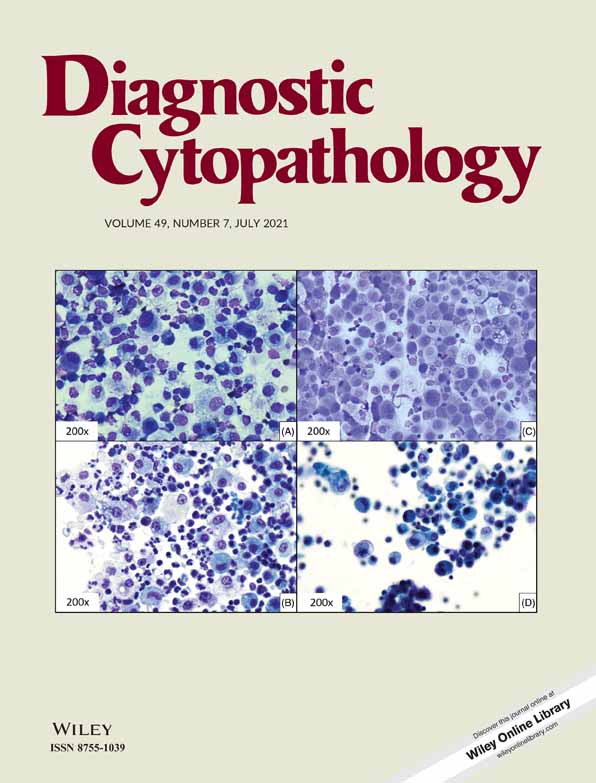Lymphomatous effusion of monomorphic epitheliotropic intestinal T-cell lymphoma is characterized by azurophilic granules and is a dismal sign: Report of two new cases with literature review
Abstract
Lymphoma involving serous effusion is uncommon. The diagnosis of effusion lymphoma may be challenging, particularly when the lymphoid cells are small to medium-sized, which would be difficult for differentiating reactive effusions from low grade lymphomas. Monomorphic epitheliotropic intestinal T-cell lymphoma (MEITL) is an uncommon type of aggressive intestinal T cell lymphoma with a median survival of 7 months. MEITL rarely disseminates to the body cavities. To date, there are only three reported cases of MEITL with malignant effusion. Here we report two additional cases of MEITL with lymphoma cells involving the pleural effusion and the ascites, respectively. Review of the three literature cases and our two new cases of MEITL with malignant effusion, cytoplasmic azurophilic granules were identified in both the two cases with Liu stain. The median survival time was 1.5 months after the occurrence of malignant effusion, even shorter than the median survival in patients with MEITL. Although the case number is small, malignant effusion seems to be a poor prognostic factor of MEITL.
CONFLICT OF INTEREST
The authors declare no potential conflict of interest.
Open Research
DATA AVAILABILITY STATEMENT
Author elects to not share data.




